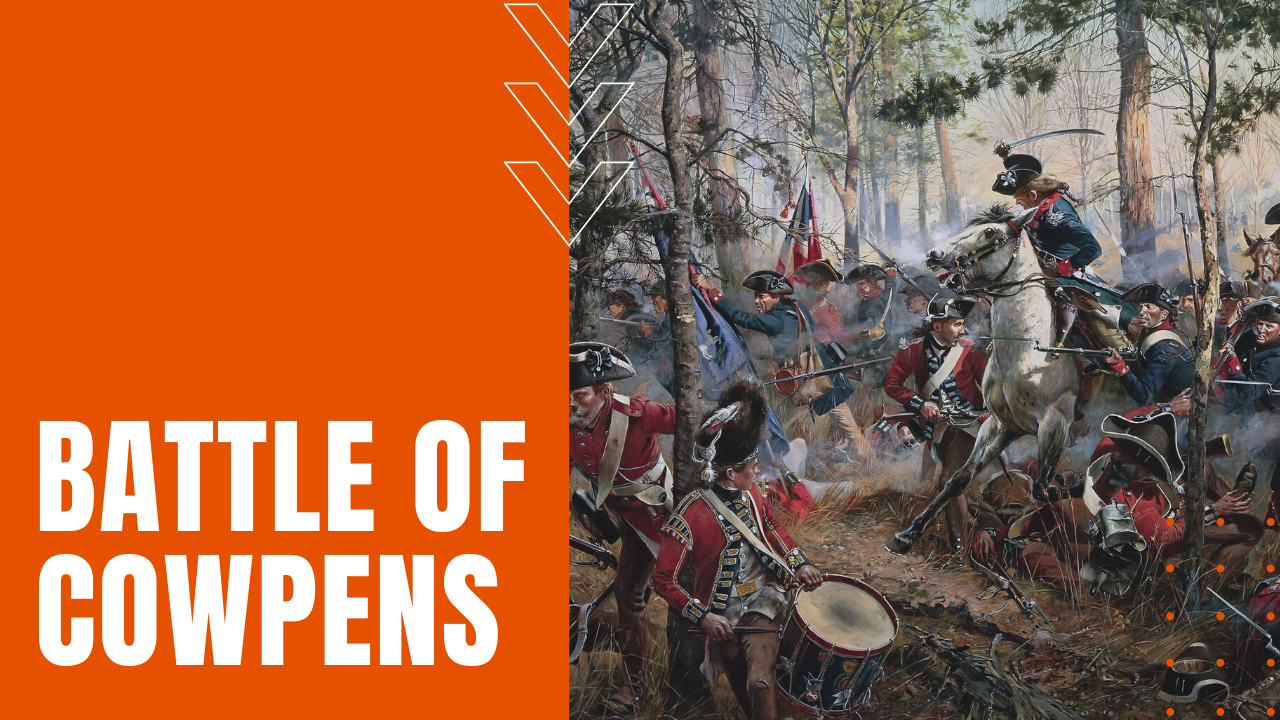Battle of Cowpens: Morale-Boosting Victory For The Patriots

Following American defeats at Charleston and Camden in 1780, as commander of the Continental Army’s Southern campaign, Major General Nathanael Greene made the strategic decision to divide his fighting men in the Carolinas, with the goal of forcing British troops under the command of General Charles Cornwallis to fight them on multiple fronts.
Greene’s decision also entailed a secondary strategy of easing supply line strains to his beleaguered troops, since smaller groups of men proved to be easier to feed. To implement his plan, Greene ordered Brigadier General Daniel Morgan to attack the British backcountry fort known as Ninety-Six, riding out with some 300 riflemen and 700 militia. Fearing a widespread Patriot uprising in backcountry South Carolina, when intelligence reports reached Cornwallis about Morgan’s troop movements, he ordered General Banastre Tarleton to lead a force of 1,100 Redcoats and Loyalists to intercept and defeat Old Waggoner, as Morgan was known, due to his service as a wagon driver during the French and Indian War.
Battle of Cowpens
When Morgan learned of Tarleton’s approach, he backed his men up to a river at Cowpens, which was then a pastureland east of present-day Spartanburg South Carolina and some 80 miles north of the British-held Fort Ninety-Six.
Coming under fire from Tarleton’s forces, Morgan ordered his men to fire two rounds at the front line before retreating, which the British mistook for a rout. Charging after the Patriots, the British were decimated by concentrated rifle fire combined with an American cavalry charge. While Tarleton would escape the field with his life, more than 800 of his men were killed, wounded or captured, compared to less than 100 casualties on the American side.
Who Won the Battle of Cowpens?
The resounding victory for the American Patriots served as an important morale-boosting turnaround in the American’s Southern campaign. Proving that they could defeat a British force of similar size, without the benefit of surprise or geographic advantage, propelling the Americans onward to victory during the Siege of Yorktown in October of 1871, forcing the surrender of Lord Cornwallis and the end of the Revolutionary War, making the Battle of Cowpens, an important turning point in the fight for American independence.
